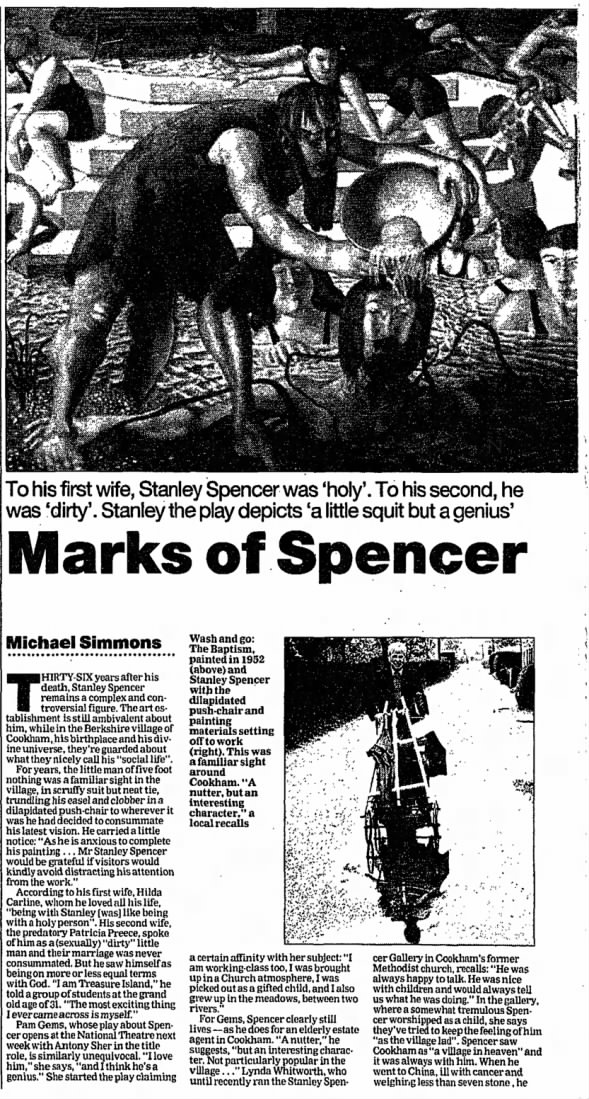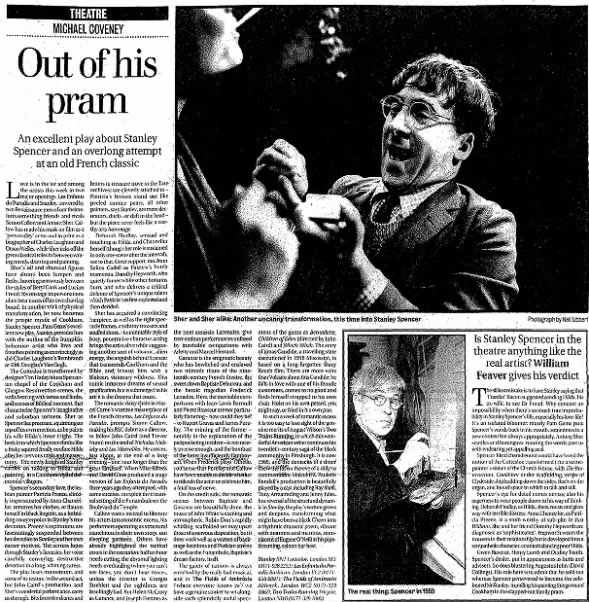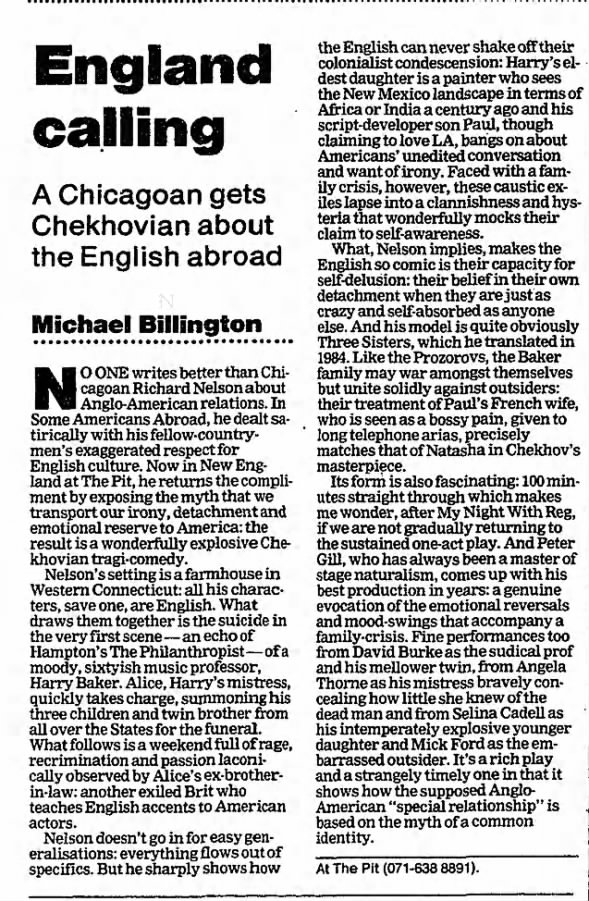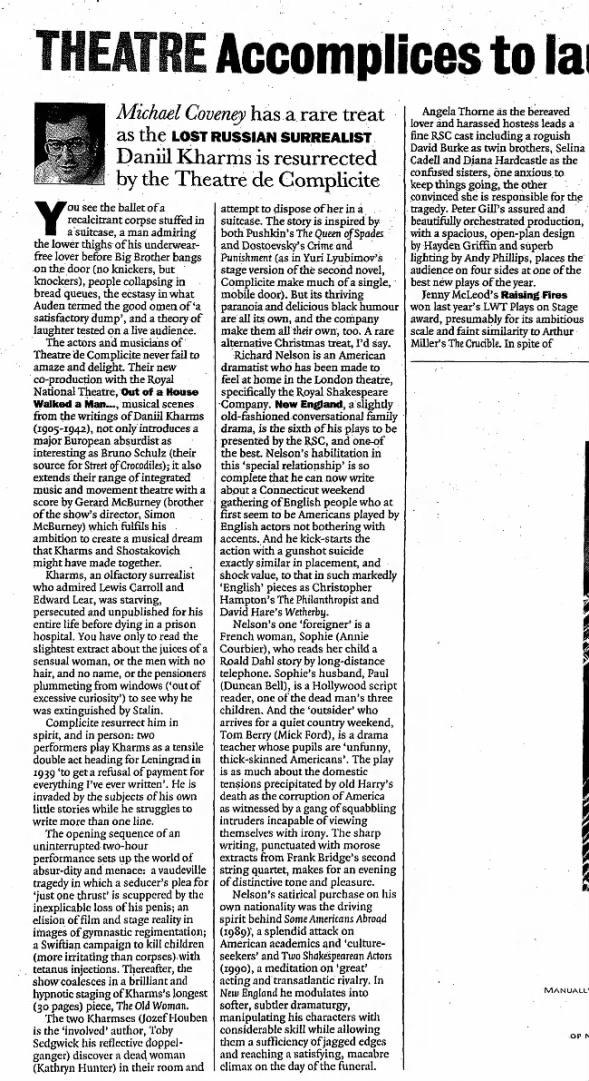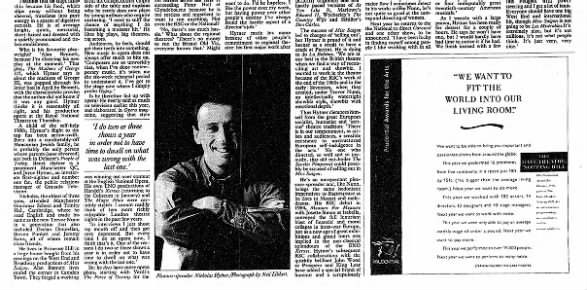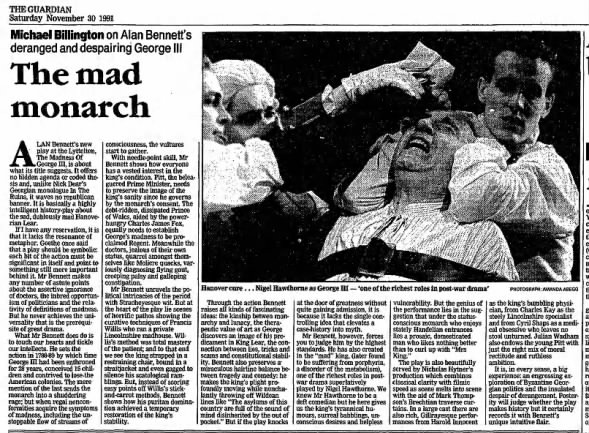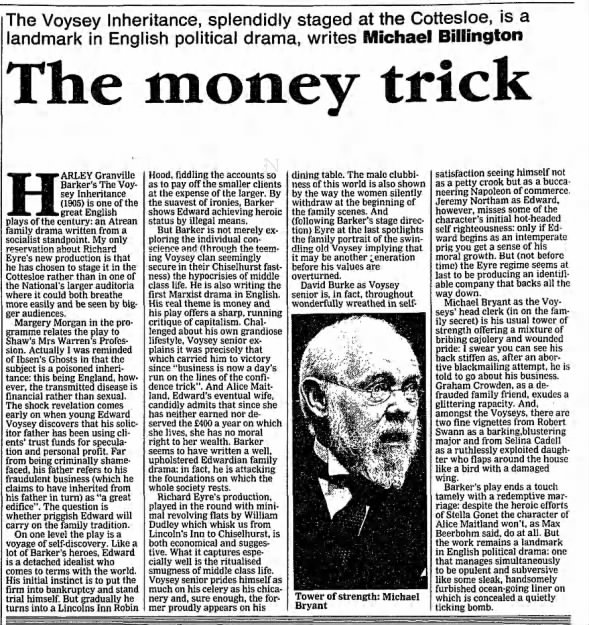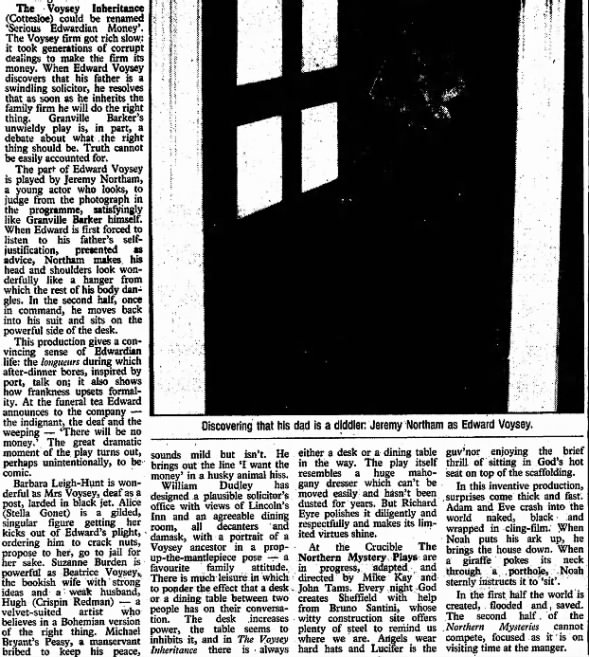Well who’d have thought it? You see The Double Dealer at the National Theatre as a teenager in 1978 and then, quick as a forty-year flash, another London production comes around.
Here is a link to The Orange Tree Theatre’s resource on this production.
I have very happy memories of this play from two Alleyn’s School drama field trips at/with the National Theatre:
- to “workshop” some of the scenes with understudies and assistant directors of the National, 22 September 1978 – written up here;
- to enjoy a backstage tour of the National and see a matinee of the 1978 production in the Olivier Theatre 12 October 1978 – written up here.
When this 2018 production was announced for the Orange Tree, one of our favourite fringe theatres, my immediate reaction was that I simply had to see it. But Janie really doesn’t like restoration comedy at all…like…not at all. So we resolved that I would go to Richmond midweek to see this one.

I played real tennis late afternoon at Lord’s, then drove over to Richmond to see the play. Tennis is an especially appropriate activity before seeing Congreve, I discovered, as William Congreve managed and premiered most of his plays (subsequent to The Double Dealer) at Lisle’s Tennis Court, aka Lincoln’s Inn Fields Playhouse, in the last few years of the 17th century and the early 1700s.
I took my seat a little early and observed several members of the cast scurrying back and forth across the stage as if still setting up the party which forms the backdrop to the play The Double Dealer. The conceit of this production is that the audience is, in effect, other guests at the party, so the cast at times engages with members of the audience. I thought that aspect worked really well, although one gentleman sitting next to me seemed more than a little nervous of, as he described it, “audience participation”.
Actually I think the cast were, prior to the start of the play, deliberately trying to suss out the audience – working out who might respond willingly or less willingly to such business. As luck (or ill-fortune, depending on your view) would have it, the two seats next to me were unoccupied.
Dharmesh Patel, who was playing Careless, sat next to me for a while before the show and asked me whether I was an Orange Tree fan, a restoration fan or neither. I told him about my 1978 experience with the play and that I was also an Orange Tree fan. He told me that Selina Cadell, the director, had seen and talked about that star-studded 1978 production it a lot in rehearsal. I said that I was hoping for better. “No pressure then”, he said.
Of course, it is not a competition between the two productions. The equivalent budget for the National production would have been orders of magnitude higher. The Orange Tree holds 180 people maximum; the Olivier can hold nearly 1000 more people than that. It is almost like producing the work for a different medium.
From a personal point of view, my response as a kid of 16, experiencing a major theatrical production for the first time, having had a thrilling backstage look at the play and the production beforehand, cannot be compared with my response 40+ years later, having seen and experienced so much else since.

One intriguing parallel between 1978 and 2018 is a context of political turmoil and Machiavellian-style politics – even more so in 2018 in fact. The Double Dealer is not an especially sophisticated play – in fact it is quite straightforward by the baroque standards of the period – but it surely was written to illustrate political intrigue as well as the overt intrigue of families and sexual relationships depicted.
I read the play in its entirety, for the first time, the night before going to The Orange Tree – from this wonderful Project Gutenburg source, here. When I read the following couplet, from Maskwell’s (The Double Dealer’s) soliloquy at the end of Act One:
One minute gives invention to destroy,
What to rebuild will a whole age employ.
…my immediate thought was, “that reminds me of Brexit.” When Maskwell said that line on the night, a woman in the audience said out loud exactly what I had thought when reading the night before.
Actually, the Maskwell character reminds me even more of the Double Dealer President across the pond, who is shaking up domestic US and global politics with his harem-scarem style. Except that Maskwell is a far more charismatic villain – at least he is so in the hands of Edward MacLiam, a pantomime villain perhaps, but still a charismatic one.
One element of the play I didn’t notice at all the first time, partly by virtue of my youth and partly by virtue of the time, was the female element of the sexual politics involved. The Lady Touchwood character (played well by Zoë Waites, who had to work especially hard, as she also played Cynthia, well) is a fairly straightforward villain, but the Lady Plyant character (played by Jenny Rainsford in 2018, having been Dorothy Tutin’s award-winning role in 1978) is surprisingly complex. In a way she is also a Double Dealer – but as a woman she is (to milk the card game metaphor dry) playing with a lesser hand with fewer tricks. She knows she can use her sexual allure to some advantage but, having made the decision to marry an old man she does not fancy at all, is frustrated and in thrall to her own sexual desires. In a modern sexual politics context, the #MeToo movement and fake news phenomena came to mind as well.
Personally, I enjoyed the audience interaction, of which I thought the cast did plenty, but not too much. The production could have descended into excessive pantomime style in the second half but they wisely reigned in most of the ad lib business as the plot plays out to its inevitable denouement.
I also appreciated the use of the original Purcell music, being a bit of an early music aficionado myself. Paul Reid and Hannah Stokely (as Lord & Lady Froth) performed Cynthia Frowns as a solo voice and cello duet extremely well for the context of the play. They are clearly both capable musicians, so it sounded lovely, but they made their efforts come across as “just difficult enough” to be in keeping with their faux culture vulture characters.
I can’t find a male voice rendering of the song on-line, but here is a lovely soprano version of it. The song is, by the way, part of the wonderful original book of Purcell songs, The Gresham Autograph, which I have had the honour of seeing close up at the Guildhall Library.

Listed as “Celia (Cynthia) Frowns” – even Purcell recycled his original material it seems – who knew?
In short, in my view, this production of The Double Dealer is a really excellent revival of an interesting but not great restoration work.
The reviews have been mixed – click here – but I’d certainly recommend this production (unless, like Janie, you have an aversion to restoration comedy) as a thoroughly entertaining evening at the theatre, with enough in the text and performances to please thoughtful members of the audience too.


